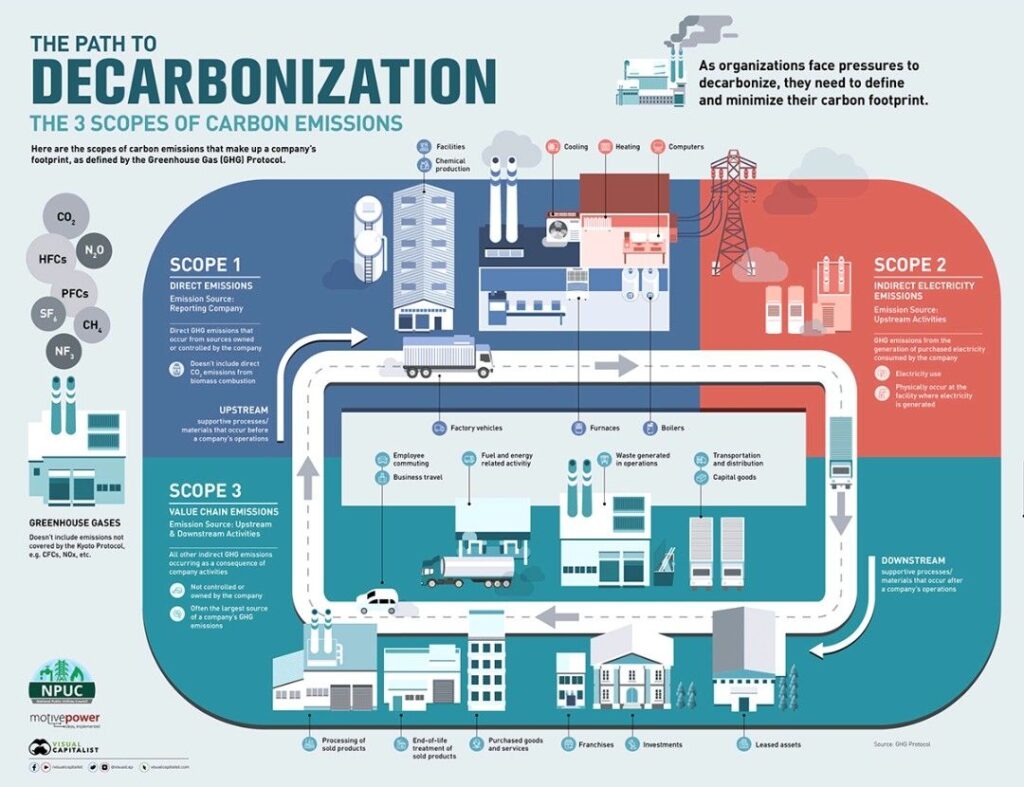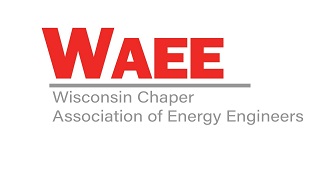Achieving net-zero carbon emissions is a goal for the world to mitigate the worst impacts of climate change. The energy industry, which is responsible for a significant portion of global greenhouse gas (GHG) emissions, will play a crucial role in achieving this goal. The graphic below, by Greenhouse Gas Protocol, describes the three scopes of carbon emissions.
When taking on GHG issues, there are several technical, political and economic challenges that need to be addressed:
Technical Challenges with Carbon Emission Reduction
From a technical perspective, transitioning to a net-zero carbon emissions energy system will require significant investments in research and development of new technologies. Renewable energy technologies such as solar, wind and geothermal are already available and cost-competitive in many markets. However, they require significant infrastructure investments and energy storage solutions to ensure a reliable supply of energy. Additionally, new technologies such as carbon capture and storage (CCS) and green hydrogen production are needed to decarbonize industrial processes that are currently difficult to electrify.
Political Challenges
From a political perspective, achieving net-zero carbon emissions requires strong policies and regulations that incentivize the transition to clean energy sources. Governments must set clear targets and provide financial support to drive investment in clean energy technologies. However, political will is often constrained by competing interests such as economic growth, staid policy influence and social welfare.
Economic Challenges
Economically, the energy industry faces significant challenges in transitioning to a net-zero carbon emissions system. Fossil fuels such as coal, oil and gas are still the dominant sources of energy in many parts of the world, and they are often subsidized by governments. The transition to clean energy sources will require significant investments in new infrastructure, which may result in higher energy costs for consumers in the short term. However, there are also opportunities for businesses that embrace the transition to a net-zero carbon emissions system. Companies that invest in renewable energy technologies and other low-carbon solutions may benefit from new markets and reduced regulatory risks.
Operational Challenges for Businesses Striving Towards Net Zero Carbon Emissions
Businesses are also concerned about the potential impact of transitioning to a net-zero carbon emissions system on their operations and bottom line. Many companies rely heavily on fossil fuels for their energy needs, and the transition to clean energy may require significant changes to their supply chains and business models. However, there are also significant opportunities for businesses that embrace the transition to clean energy. Companies that invest in renewable energy technologies and other low-carbon solutions may benefit from new markets, reduced regulatory risks and more reliable energy.
Overcoming the challenges to mitigating or eliminating carbon emissions will benefit from a balanced and phased approach to clean energy, and the more options we have the better as we evolve from conventional centralized generation, transmission and distribution. Contact EnTech Solutions for support of your clean energy goals.
Thank you for checking out the EnTech Solutions blog. To stay up to date with technologies, developments and trends about clean energy, please subscribe.









